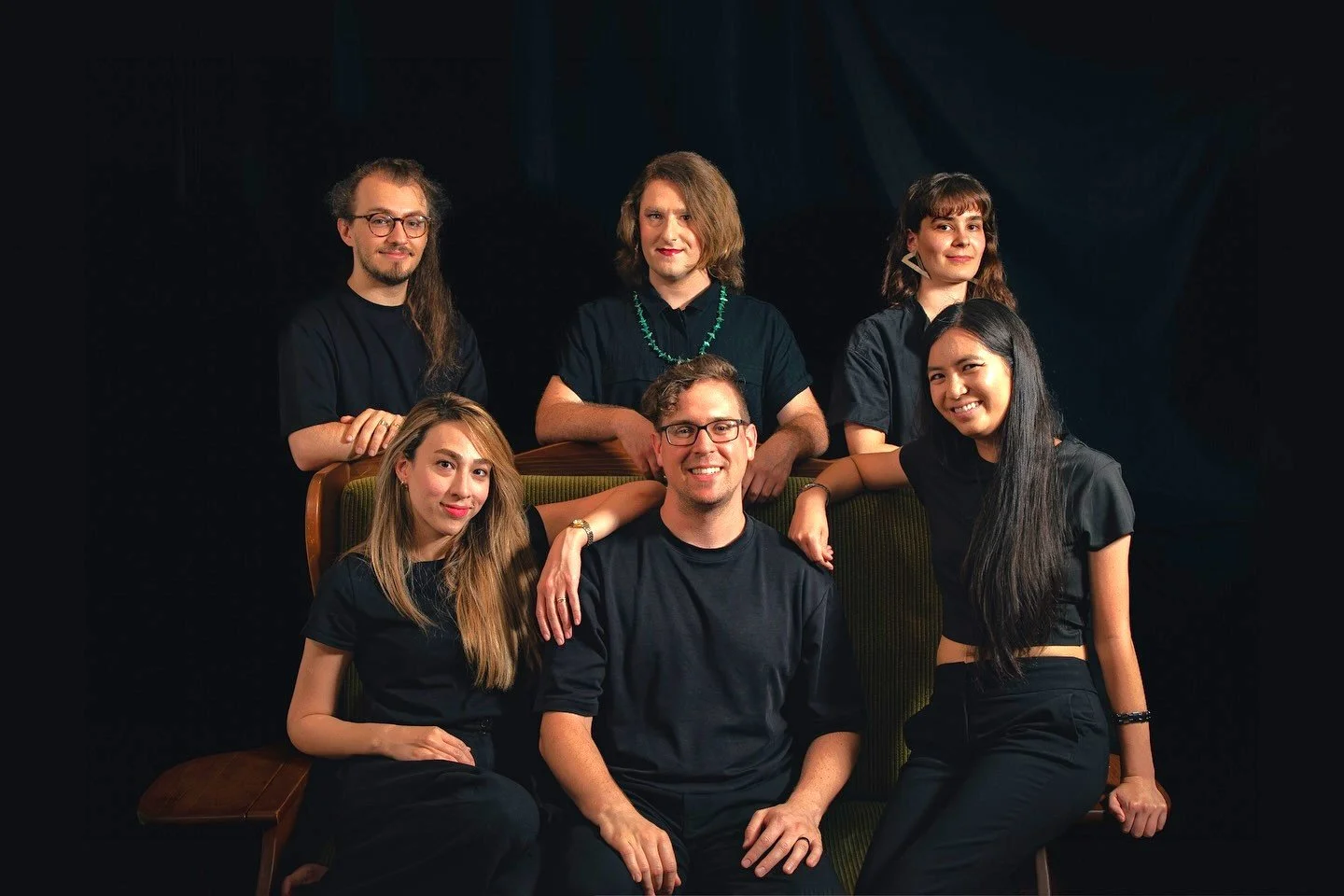Clockwise from top left: Cole Manel, Niccolo Seligmann, Olivia Castor, Mira Fu-En Huang, Cameron Welke, Sarah Shodja
Magdalena
(Winners of Early Music America’s 2024 Emerging Artist Competition)
Óró Mhór:
Songs of Ireland and Scotland
Sunday, June 29, 2025 | 3:00 PM
The Indiana History Center
450 West Ohio Street, Indianapolis, IN 46202
(Pre-Concert Chat begins 30 minutes prior to concert)
For their Indianapolis Early Music Festival debut, Magdalena, winners of Early Music America’s 2024 Emerging Artist Competition, presents “Óró Mhór*: Songs of Ireland and Scotland.” With heartrending ballads and raucous dances adapted from both historic manuscripts and the oral tradition, this program celebrates the intersection between early music and folk traditions from the British Isles. Enjoy a unique sonic tapestry that pushes the boundaries of early music, both in genre and accessibility to audiences.
* pronounced "or-uh wore"... the M is pronounced like a W!
Program
Scottish Traditional
Scottish Traditional
Irish Traditional
Irish Traditional
Irish Traditional
Irish Traditional
Irish Traditional
Irish Traditional
Scottish Traditional
Scottish Traditional
Irish Traditional
Irish Traditional
Scottish Traditional
Colla mo Ruin
A Mhic lain ’ic Sheumais
Óró’ Mhór a Mhóirín
Unnamed Slip Jig
Banish Misfortune
The Clare Reel
The Old Bush
The Reel With The Burl
Port Rorie Dall
Lord Randall, My Son
King of the Blind
The Kesh
Anachie Gordon
Intermission
Scottish Traditional
Scottish Traditional
Scottish Traditional
Scottish Traditional
Irish Traditional
Irish Traditional
Irish Traditional
Scottish Traditional
Thomas Connellan (c. 1640/45-1668)
Aindrias Mac Craith, 1710-1795
Scottish Traditional
Scottish Traditional
Irish Traditional
attrib. to Màiri Nighean Alasdair Ruaidh (c.1615-1707)
Do Chrochadh a Thoill Thu
Thoir A-Nall Ailean Thugam
Neil Roy
In a Garden so Greene
Inis Oírr
Toss the Feathers
Humors of Tullycrine
A New Scotch Song of Catherine Logy
Sile Bheag Ní Chonnalláin
Slán le Máigh
Canaries
Teann a-nall is Cùm Do Ghealladh
The Jointure Jig
Mairead nan Cuiread
About the Program
Vocal nonsense is something that has occurred in music across cultures since antiquity. Various types of it have various origins, from singing a song in gibberish when you’ve forgotten the words, to the Irish and Scottish practice of “lilting,” in which vocalists imitate instruments when said instruments are not available. Regardless of its origins, vocal nonsense is something that completes much of music, and is a literal embodiment of Hans Christian Andersen’s famous quote, “Where words fail, music speaks.”
This concept is the heart of our Óró Mhór (pronounced “OR-o WORE”) program: a program of music that moves people, despite (or perhaps because) words fail it. In fact, the phrase “óró mhór” itself is an example of lilting in the song, “Óró’ Mhór a Mhóirín.” Throughout the program, you will hear other examples of lilting, particularly in the waulking songs, “A Mhic lain ’ic Sheumais” and “Mairead nan Cuiread,” and the puirt à beul songs, “Do Chrochadh a Thoill Thu” and “Thoir A-Nall Ailean Thugam.” Hailing from Scotland, waulking songs are beat-driven, call-and-response songs performed by women while they work wool. Puirt à beul, literally meaning “mouth music,” comes from the practice of singing accompaniment to dance music when instruments are unavailable.
Dance music itself is another major component of our Óró Mhór program, as it is quite literally wordless music that people move to. From lively jigs and reels to slower slip jigs and strathspeys, we have filled this program with music that accompanies traditional Irish and Scottish dance. Some of these tunes are rarely heard outside their home countries’ borders; others are beloved classics that can be heard on many a Celtic album. All are celebratory tunes that speak without need of words, moving the body and soul alike.
We have also included several texted songs and ballads, as they represent an important part of Irish and Scottish music. Some of these songs are sung in English, while others are sung in Irish or Scottish Gaelic (yes, they are two different languages!). While we have provided texts and translations for all the songs, and while there are textual themes that reach across the program (love, heartbreak, and loss, to name a few), we encourage you to join us in the moment and absorb the feelings of the music, rather than the texts.
Óró Mhór: Songs of Ireland and Scotland is a program that celebrates the music people move to, regardless of its words or lack thereof. Sourced from archived manuscripts and oral traditions alike, we are thrilled to share this collection of tunes at the intersection of early music and folk tradition, where words and melody entwine to capture the beauty of lived experience.
Cameron Welke, lutes
Cole Manel, renaissance guitar & mandolin
Mira Fu-En Huang, voice & percussion
Sarah Shodja, recorders
Olivia Castor, harp
Niccolo Seligmann, viola da gamba & bowed dulcimer

